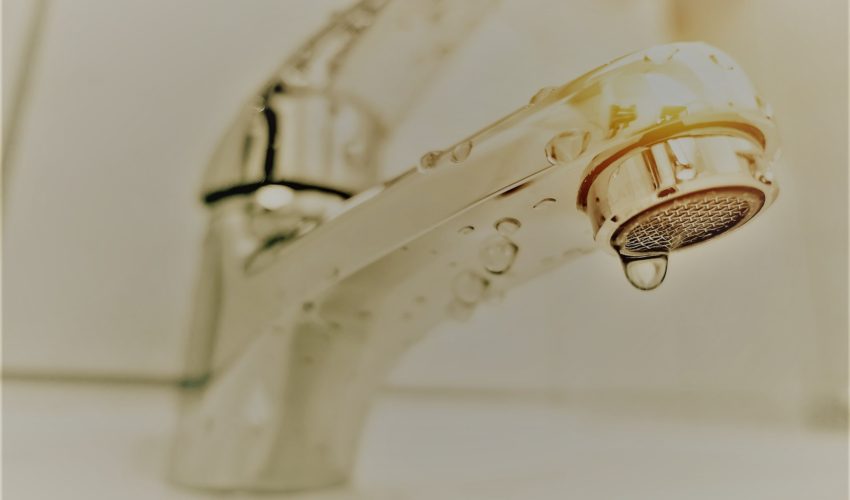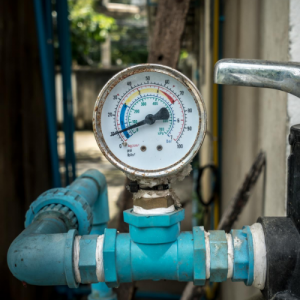This article following next in relation to 9 Reasons for Low Water Pressure in Your House is without a doubt interesting. Give it a go and make your own personal results.

Low water stress in your home can be an irritating issue, influencing whatever from showering to cleaning meals. If you're experiencing weak water flow, there are several feasible causes and solutions to discover. In this guide, we'll discuss common reasons for low tide stress and practical steps to deal with the concern efficiently.
Introduction to Low Water Pressure
Low tide pressure occurs when the circulation of water from your taps, showers, and various other components is weaker than common. This can make day-to-day tasks more tough and much less efficient. Understanding the causes of low water stress is important to locating the ideal remedy.
Usual Sources Of Low Tide Pressure
Faulty Pressure Regulators
Stress regulators are accountable for maintaining constant water pressure in your home. If they malfunction, it can cause low water pressure or uneven circulation throughout the house.
Local Water System Issues
Often, the problem exists outside your home. Community supply of water concerns, such as main line leaks or maintenance work, can momentarily minimize water stress in your location.
Pipeline Obstructions
With time, pipes can end up being obstructed with natural resource, debris, or particles, limiting the circulation of water. This is an usual concern in older homes with galvanized steel pipelines.
Rust
Deterioration within pipelines can cause leakages and minimized water pressure. Corrosion build-up can restrict water flow, particularly in aging plumbing systems.
Exactly How to Detect Low Tide Stress
Inspecting Pipelines
Inspect noticeable pipelines for signs of leaks, rust, or blockages. Focus on any unusual sounds, such as banging or rattling pipes, which can indicate issues within the plumbing system.
Consulting with a Plumber
If you're incapable to pinpoint the source of low water pressure, consider employing a specialist plumber to conduct a comprehensive examination. They can recognize underlying problems and recommend suitable solutions.
Examining Faucets and Components
Begin by evaluating the water pressure at different faucets and components throughout your home. If the issue is separated to particular locations, it may indicate local problems.
Do It Yourself Solutions to Take Care Of Low Tide Pressure
Flushing Hot Water Heater
Debris accumulation in the hot water heater can limit flow and lower effectiveness. Purging the container periodically aids remove debris and preserve ideal performance.
Examining Stress Regulatory Authority
Make sure that the stress regulator is working correctly. Adjusting or replacing the regulator can aid bring back correct water stress throughout your home.
Cleaning Aerators and Showerheads
Mineral deposits can collect in aerators and showerheads, minimizing water flow. Get rid of and clean up these parts routinely to improve water stress.
Cleaning Clogs in Pipeline
For small blockages, try making use of a plumbing snake or chemical drainpipe cleaner to clear blockages in pipes. Beware when utilizing chemicals and comply with safety and security guidelines.
When to Call a Professional Plumber
If DIY initiatives fail to resolve the concern or if you presume significant plumbing problems, it's best to look for support from a certified plumber. They have the know-how and devices to resolve complicated issues safely and successfully.
Preventive Measures to Preserve Water Pressure
Mounting a Pressure Booster
Think about installing a stress booster pump to improve water stress in areas with consistently low circulation. This can be specifically valuable for multi-story homes or buildings with high-demand fixtures.
Tracking Water Use
Bear in mind water use practices and stay clear of ill-using the plumbing system. Easy changes, such as incredible showers and washing lots, can aid keep sufficient water pressure.
Regular Maintenance
Arrange routine maintenance for your plumbing system to avoid issues such as corrosion, leaks, and obstructions. Dealing with minor troubles early can assist prevent more substantial repairs later.
Final thought
Managing low water pressure can be aggravating, yet recognizing the underlying reasons and carrying out suitable remedies can restore optimum circulation throughout your home. Whether it's cleaning aerators, checking pipelines, or speaking with a plumber, taking aggressive steps can guarantee a constant supply of water for your daily needs.
HOW TO FIX LOW WATER PRESSURE IN YOUR HOUSE
When your plumbing system functions properly, you likely never think about the water pressure coming from your faucets, shower heads, or other water fixtures. If you experience low water pressure in your house, though, it can quickly cause problems for cooking, cleaning, bathing, and laundry. Learning how to fix low water pressure in your house can help you avoid frustrating situations and worsening plumbing issues.
When investigating why your home has low water pressure, call the plumbing professionals at Hutchinson to inspect your system, identify the problem, and perform necessary repairs. Our highly-trained plumbing system experts utilize the best tools and techniques available to resolve issues with your home’s plumbing system. Call today to schedule a service with our experts and resolve the low water pressure in your home.
Common Causes of Low Water Pressure
While learning about how to fix low water pressure in your house, it’s essential to understand the various causes of this issue. From plumbing system failures to issues with your water fixtures, there are many reasons for low water pressure in a home. The most common causes of low water pressure include:
Pipe corrosion: If you live in an old house, your pipes could be much older than you realize. Over time, most pipes corrode, especially those made from galvanized steel. Corrosion creates small holes in your pipes that allow water to leak as it travels to your fixtures, leading to low water pressure. Hard water: Hard water forms when water retains a certain concentration of mineral and sediment buildup. Hard water can exacerbate corrosion and reduce water pressure. Hard water remains one of the main culprits of clogged pipes. Clogged pipes: When a pipe blockage clogs your system, it restricts water flow. That’s why clogged pipes are a leading cause of low water pressure. Faulty fixtures: Components within individual water fixtures can experience isolated clogging and rusting that cause low water pressure. If you notice only low shower pressure or limited faucet flow, inspect your system for faulty fixtures displaying rusting, clogging, and other damage. Water line leaks: Your water supply usually comes from a community source connected to your home through a water line. Any leaking in this water line will reduce water pressure before it enters your home. If you share a water line with neighbors, they might also notice low water pressure due to this problem. Broken pressure regulator: The pressure regulator ensures the water flowing throughout your home remains at a psi of about 50. Damage or breakdown of this crucial component will reduce water pressure throughout your property. Closed valve: The water valve supplying your home must be fully open to enable proper water pressure. A partially closed valve will yield low water pressure and cause issues. 5 Ways to Fix Low Water Pressure
Check for Leaks
Depending on their severity, leaks are usually easy to identify as the cause of your low water pressure. Whether your basement floods overnight or you notice mold growth on surfaces near your pipes, leaks usually present noticeable symptoms. In most cases, you’ll need to call professionals to replace sections of damaged piping or seal water line leaks.
Clear Clogged Pipes and Drains
Clogs can occur in any part of your system at any time. In most cases, it’s difficult to resolve clogged pipes and drains without professional equipment and experience.
Hutchinson experts can perform a comprehensive plumbing system inspection to identify the clog’s source and remove obstructions from your pipes. With the help of advanced equipment, we can restore your home’s normal water flow and pressure.
Replace the Pressure Regulator
After identifying a faulty pressure regulator as the cause of your low water pressure, there’s nothing to do but replace the mechanism. Homeowners should never conduct their own replacement.
Attempting to replace a crucial component like your pressure regulator that attaches to your overall plumbing framework could cause unnecessary damage and worsen the situation. Instead, rely on professionals to replace your pressure regulator properly.
Repair or Replace Broken Faucets and Fixtures
If you notice water pressure issues in an individual faucet or fixture, you can solve the problem quickly. Depending on the type and location of the fixture, you can likely replace it yourself.
For homes with custom fixtures, you might need to special order new parts. In these cases, opting for professional replacements helps you avoid any mishaps that could leave your water feature dysfunctional for longer.
Install a Pressure Booster
Water pressure problems impacting your neighborhood or community at large might require more overarching solutions. If your neighbors experience low water pressure as well, you might need to integrate a pressure booster into your water supply line.
Pressure boosters upgrade the water pressure starting at the source. These mechanisms can provide water pressure benefits to any homes on the same supply line. Call Hutchinson today to install a pressure booster on your water supply line.
Call Hutchinson to Fix All Your Plumbing Issues
Low water pressure is just one of many plumbing problems that reduce home comfort and cause system issues. The top-rated professionals at Hutchinson offer comprehensive plumbing services, including system inspections, maintenance, and repairs.
https://www.hutchbiz.com/blog/2024/01/15/how-to-fix-low-water-pressure-in-house/

Hopefully you liked our part about 9 Reasons for Low Water Pressure in Your House. Thank you so much for taking time to browse our blog post. Enjoyed reading our piece? Please share it. Help someone else discover it. Thank-you for your time invested reading it.
Book A Service